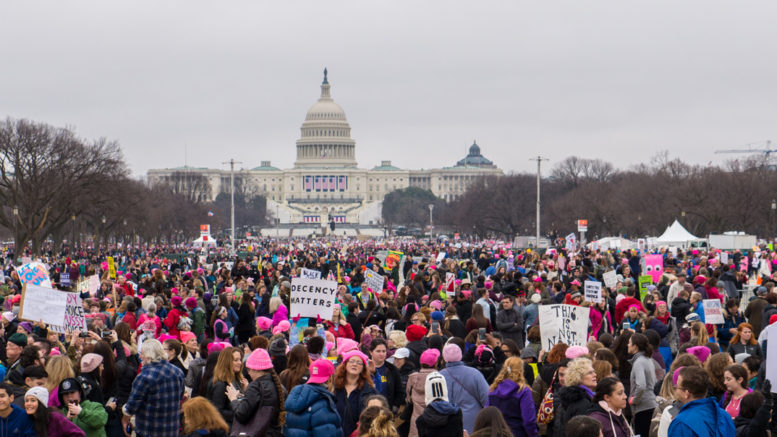International Women’s Day is celebrated each year on March 8, honoring the impact that women have across the globe. On this day, people honor both the historical acts of heroism that secured rights once denied to women, and the many acts women do in daily society that do not go down in history.
Fittingly, this is the day that the organizers of the Women’s March on Washington have chosen for the event “A Day Without a Woman.” Following the events of the march, they established an ongoing campaign for social justice and equality for not only women but everyone. This protest recognizes “The enormous value that women of all backgrounds add to our socio-economic system–while receiving lower wages and experiencing greater inequities, vulnerability to discrimination, sexual harassment, and job insecurity,” according to womensmarch.com.
The event demonstrates the significance of the role of women in our society. No matter where they come from, who they are, women are invaluable in their contributions to the socio-economic system. Despite this, women face extensive discrimination, ranging from unequal wages to sexual harassment, to general social oppression.
Organizers of the event have outlined three actions that people can do to participate in the event. First, women can take the day off from paid or unpaid labor. Second, organizers encouage participants to avoid shopping for the day. However, making purchases from small minority or women-owned businesses is acceptable.
The third option, for those who are unable to do either of the first two options to support the protest, is to wear red in solidarity with the protest. Regardless of gender, this will show support for equal rights. This final act will cement the significance of the movement that began with a march in January. Millions came together then, to raise their voices for justice, for the rights of all people, and on March 8, millions can do so once again.
This movement recognizes that across the globe, discrimination poses a serious threat to many groups, such as transgender and gender nonconforming individuals. Thus, the “Day Without Woman” unites people once again to stand up and recognize that regardless of their background, their sexual identity or their religion, human rights are for all.





